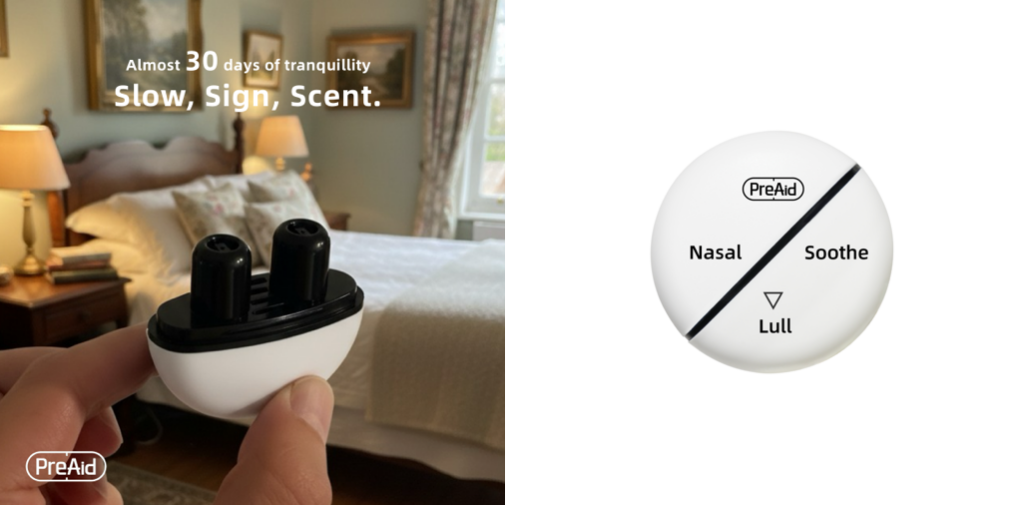You close the laptop after one more email, then lie awake watching the ceiling. The clock ticks, your mind races and the next morning already looks foggy. Small, repeatable habits built into the hour before bed can change that pattern. This guide gives practical, science‑backed steps you can use tonight, plus bedroom tweaks that improve sleep stage quality over weeks. Read on for quick wins and lasting routines to help you feel truly refreshed.

The building blocks of sleep quality
- Sleep duration: Adults typically need 7–9 hours. Less over many nights reduces cognitive function and mood.
- Continuity: Long uninterrupted sleep is better than fragmented rest of the same total length.
- Timing: Consistent bed and wake times aligned with your circadian rhythm improve sleep efficiency.
- Sleep stages: Deep sleep and REM are restorative; poor sleep architecture leaves you unrefreshed despite adequate hours.
Immediate evening routine (90–60–30 minutes before bed)
Design a predictable wind‑down to signal your body it’s time to sleep.
- 90 minutes before: Finish heavy exercise and large meals. Light reading or calm household tasks are fine.
- 60 minutes before: Dim lights and switch screens to night mode. Bright, blue‑rich light suppresses melatonin and delays sleep.
- Tip: Use apps or settings that reduce blue light and set devices to lower brightness.
- 30 minutes before: Engage in a relaxing activity — a warm shower, gentle stretch or five minutes of mindful breathing. Avoid emotionally charged conversations or work.
Bedroom environment: make the room work for sleep
Small environmental changes yield big benefits.
- Temperature: Aim for a bedroom temperature around 16–19°C (60–67°F). A cooler room helps your body drop core temperature for sleep.
- Darkness: Use blackout blinds or an eye mask. Even small light sources can fragment sleep.
- Noise control: Earplugs, white noise machines or low‑level fans can mask sudden sounds.
- Mattress and pillows: Replace an unsupportive mattress every 7–10 years and choose pillows that keep the neck aligned. Comfort improves sleep continuity.
- Bedding: Breathable fabrics like cotton or linen help regulate microclimate close to the skin.
Pre‑sleep behaviours to avoid
- Caffeine: Avoid from mid‑afternoon onward. Caffeine’s half‑life varies, but can disturb sleep even if you fall asleep easily.
- Alcohol: It may speed initial sleep onset but fragments later sleep and reduces REM.
- Heavy meals close to bed: Can cause reflux and discomfort. Opt for a light snack if hungry.
- Nicotine: A stimulant that disrupts sleep architecture.
Short relaxation practices that actually work
- 4‑7‑8 breathing: Inhale 4 seconds, hold 7, exhale 8. Repeat four times. Slows heart rate and calms the mind.
- Progressive muscle relaxation: Tense each muscle group for 5 seconds then release, working from toes to head. Takes 10 minutes and reduces physical tension.
- Guided imagery or body scan: Use a short audio track to direct attention away from racing thoughts.
- Two‑minute “worry time” earlier in the evening: Jot down tasks and set a plan for tomorrow, so worries don’t replay at night.
Light exposure and circadian timing
Your internal clock responds to light. Use it to your advantage.
- Morning light: Get 15–30 minutes of natural light soon after waking to anchor your circadian rhythm.
- Evening dimness: Reduce bright exposure in the two hours before sleep; use warm light sources.
- Consistent timing: Go to bed and wake within a 30–60 minute window daily, even at weekends.
Daytime habits that improve night sleep
- Regular exercise: Aim for 30 minutes most days. Finish vigorous sessions at least 2–3 hours before bed.
- Mind your naps: Short naps (10–20 minutes) early afternoon can boost alertness without harming night sleep. Long or late naps can delay bedtime.
- Balanced diet: Foods high in tryptophan (turkey, seeds), complex carbs and magnesium can aid sleep when eaten earlier in the evening.
Tracking and small experiments
- Keep a sleep diary for 2–4 weeks: note bedtime, wake time, perceived sleep quality and daytime factors (caffeine, exercise).
- Change one variable at a time: Test a single habit for a week — e.g., bedtime moved 30 minutes earlier — and compare results.
- Use wearables cautiously: They provide trends, not precise staging. Focus on how you feel during the day.
Troubleshooting common problems
- Struggle falling asleep: Stop clock‑watching, leave the bed after 20–30 minutes and do a relaxing task until sleepy.
- Waking at night: Avoid alcohol late, rule out nocturia (reduce evening fluids), treat reflux, and ensure bedroom comfort.
- Lack of restorative sleep despite time in bed: Screen for sleep apnoea (loud snoring, daytime sleepiness), restless legs, chronic pain or medication effects with your GP.
When to seek professional help
- Persistent problems lasting more than three months despite good sleep hygiene.
- Loud, disruptive snoring with gasping or choking.
- Excessive daytime sleepiness affecting work or safety.
- Frequent awakenings or mood/cognitive decline.
A simple nightly checklist
- Finish heavy food and exercise 90 minutes before bed.
- Dim lights and reduce screens 60 minutes before.
- Take a warm shower or do a short relaxation exercise 30 minutes before.
- Set bedroom temperature to cool and use blackout curtains.
- Keep a consistent bedtime and wake time.
- Use earplugs or white noise if needed.
- Note one worry in a journal earlier in the evening, then close the book.
Final note about building lasting change
Sleep improves incrementally. Small, consistent tweaks are more effective than radical overnight shifts. Prioritise light exposure, a regular schedule and a calm pre‑sleep routine. If lifestyle changes don’t help, a GP or sleep specialist can assess for treatable conditions.
Dozywave continues to develop sleep solutions that support healthier nights. From bedroom products to practical guides, we’re here to help you achieve baby‑like sleep, night after night.



